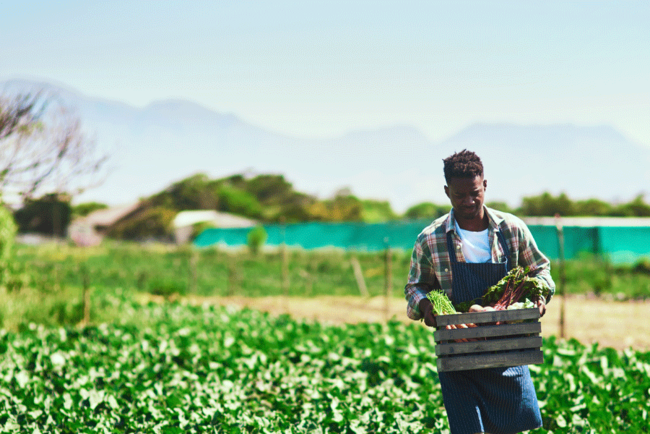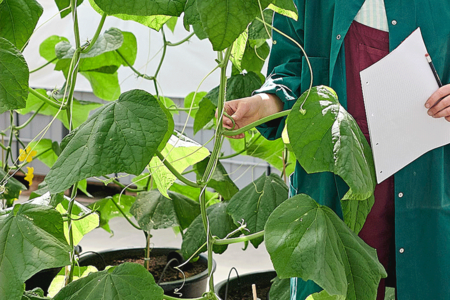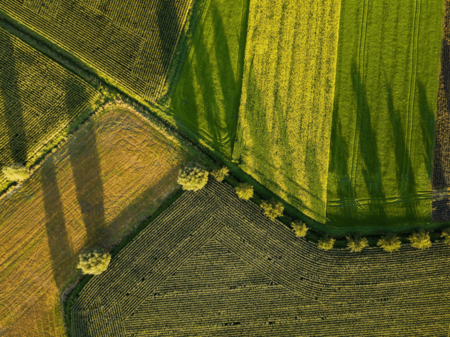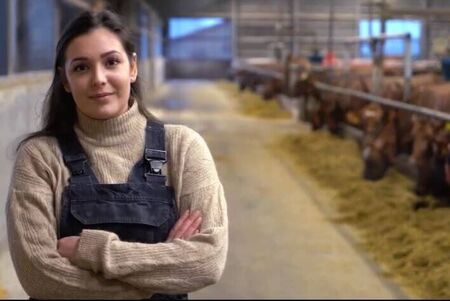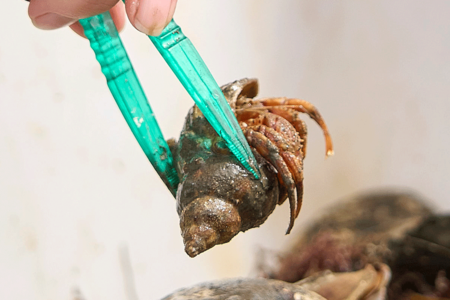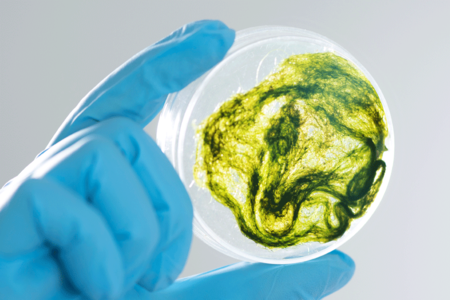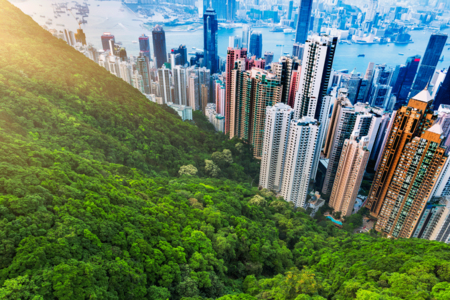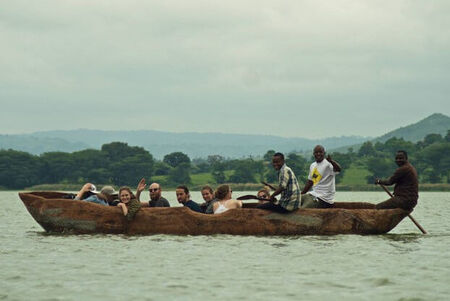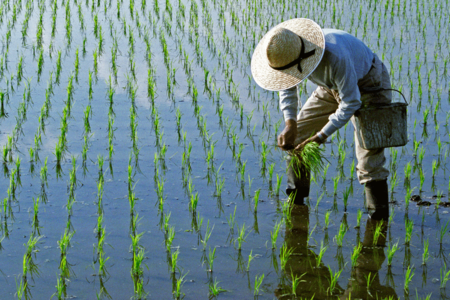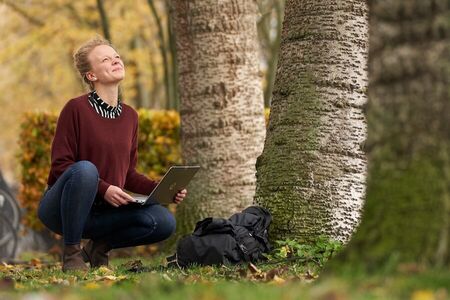About the programme
Sustainable use of the planet’s environmental resources is a global challenge. As an MSc in Environment and Development you work with the solutions to this, with a particular focus on lower income countries.
The 2-year MSc programme practices field- and research-based learning, giving you a holistic and realistic understanding of environmental resources and development – from soil fertility management to rural livelihood strategies.
What makes the programme at UCPH unique?
This programme focuses on natural resources in a development context. Students engage with case studies and interdisciplinary methods. Collaboration with institutions abroad brings global relevance to local solutions.Why is this programme relevant?
Global inequalities and environmental degradation are deeply connected. This degree equips you to address resource challenges in both developing and developed contexts. Graduates contribute to sustainable development across the globe.Considering studying at UCPH this September?
Apply by 15 January if you are an applicant from outside the EU/EEA/Switzerland. Apply by 1 March if you are from the EUAdmission and application
To apply for admission to this master's degree programme, you must have completed a qualifying bachelor’s degree or a similar Danish or international degree programme which is assessed to be relevant. Apply for admission via the application portal.
Below, you can read more about admission requirements and which documents to upload in the application portal.
Academic admission requirements
Here you'll find the different academic requirements depending on which qualifying degree you hold.
You meet all academic requirements if you hold one of the degrees listed below. Learn about when and how to apply. Note, however, that you still need to document that you meet the programme's language requirements.
From University of Copenhagen
- Agricultural Economics/Environmental and Food Economics
- Animal Science
- Anthropology
- Biochemistry
- Biology
- Biotechnology
- Economics
- Food and Nutrition
- Forestry and Landscape Engineering
- Geography and Geoinformatics
- Natural Resources
- Political Science
- Sociology
From Aarhus University
- Anthropology
- Biology
- Biotechnology engineering (civilingeniør)
- Plant- and Food Science
- Politics and Economics
- Political Science
- Economy
From University of Southern Denmark
- Biology
- Chemistry and Biotechnology
- Political Science
- Economy
From Roskilde University
- Environmental Biology
- TekSam
- International Studies
- Geography
- Economy
If you have a Bachelor’s degree other than those listed above, you must submit additional documentation along with your application so we can evaluate whether or not you meet the admission requirements. Learn about when and how to apply.
If you have a Bachelor’s degree, Professional Bachelor's degree or equivalent from Danish or international universities you are qualified for admission if your programme includes the following:
- 30 ECTS credits within the field of social science
or
- 30 ECTS credits within the field of natural science
We may also admit applicants who, after an individual academic assessment, are deemed to possess educational qualifications equivalent to those required above.
Qualifying degree and other courses/projects
When we assess whether you meet the admission requirements for the Master's degree program, Danish legislation only allows us to assess your Bachelor's degree. Consequently, you cannot study supplementary courses between Bachelor's and Master's degree programs in order to meet the admission requirements.
If you have passed courses/projects before you complete the qualifying Bachelor's degree, these can be included in the assessment, even though they are not part of the Bachelor's degree program.
- It applies to courses/projects you have taken as single subjects and courses/projects you have taken as part of another study program.
- A maximum of 30 ECTS credits of these courses/projects may be included.
Language requirements
You are required to document that you fulfil the language requirement English B, unless you have a legal right of admission to the programme you are applying for.
Please note that you must have the documentation ready by the application deadline.
Application deadlines
Study start in September
1 March at 23:59
Application deadline for Danish applicants and applicants from within the EU, EEA and Switzerland.
Open for applications from 16 January. You will receive a reply by 10 June.
15 January at 23:59
Application deadline for applicants from outside the EU, EEA and Switzerland.
Open for applications from 15 November. You will receive a reply by 13 March.
How to apply
Choose the category below that fits you and read more about how to apply for admission. You will also find information about application deadlines and documentation on the websites.
Citizen in Denmark, EU EEA or Switzerland
Bachelor’s degree from Denmark
International bachelor’s degree
Citizen in a country outside EU, EEA or Switzerland
Bachelor’s degree from Denmark
International bachelor’s degree
Prioritisation of applicants
If the number of qualified applicants to the programme exceeds the number of places available, applicants will be prioritised according to the following criteria:
- Grades achieved in relevant courses (agricultural economics, environmental and food economics, animal science, anthropology, biochemistry, biology, biotechnology, economics, food and nutrition, forestry and landscape engineering, geography and geoinformatics, international studies, natural resources, plant science, political science, or sociology)
- Grade-point average achieved in qualifying degree
Limitation on second degrees
If you have already completed a Master's degree, please check out the rules concerning a second degree.
| Admission statistics Environment and Development 2025 | |
|---|---|
| Admitted (of which have start in February) | 27 (0) |
| Admission distribution (legal right/other) | 0% / 100% |
| Applicants | 378 |
| Age average | 25 |
| Nationality (dk/international) | 19% / 81% |
Programme structure
When you enroll in the MSc programme in Environment and Development, you must choose between two different specialisations: In the Agriculture and Ecology-specialisation, your main academic focus lies within the field of natural sciences. In the Livelihoods and Governance-specialisation, your focus is on the field of social sciences.
In both specialisations, the programme consists of three compulsory courses, which introduce you to an interdisciplinary scientific approach to environmental resource challenges, particularly in lower income countries.
Furthermore, you follow both restricted elective (specific to each specialisation) and elective courses. The teaching methods varies between lectures, exercises, field work, and project work. You will be working both independently and in project groups.
You and your fellow students will participate in field work abroad. This might be, for example, the mountain areas of Thailand, where you collaborate with local students and educational institutions in a problem-based case study on resource use, agriculture, and livelihoods. You will also collect primary data in connection to your thesis.
Do a Project in Practice or Study Abroad
You can use some of your elective courses to do a Project in Practice in collaboration with a company or an organisation. You can also choose to study abroad as part of your programme. Read more here:
Master's Thesis
The programme is completed with a thesis, which takes approximately six months. Your title will be MSc in Environment and Development. The thesis requires a minimum of two months' field work. You decide the subject for your thesis.
Specialisations
When you enroll in the programme you are required to choose between two specialisations. You can read about the specialisations below:
On this specialisation your main focus will be on theories and interventions in relation to agricultural production and sustainable use of natural resources in the Global South.
You will be able to identify critical aspects of natural resource management in relation to food, fibre, feed, and fuel production, as well as describe patterns associated with their sustainable production. The learning approach is a combination of class-room and field-related experiences, including data collection in complex real-life situations.
Programme Overview
Compulsory courses: 30 ECTS
Restricted elective courses: 30 ECTS
Elective courses: 15 ECTS
Master's thesis: 45 ECTS
One block each year equals nine weeks of study and 15 ECTS. The table is primarily for guidance and may be subject to revision.
Year 1
| Block 1 | Block 2 | Block 3 | Block 4 |
|---|---|---|---|
| Global Challenges in Environment and Development | Quantitative and Qualitative Methods in Environment and Development | Practicing Interdisciplinary Field Research on the Environment | Elective course |
| Restricted elective course | Restricted elective course | Elective course |
Year 2
| Block 1 | Block 2 | Block 3 | Block 4 |
|---|---|---|---|
| Restricted elective course | Thesis | ||
| Restricted elective course | |||
Restricted Elective Courses
Choose your restricted elective courses from the list below. Click on each course for a detailed description.
- Agroforestry
- Applied Insect Ecology and Biological Control
- Applied Statistics
- Entrepreneurship and Innovation
- Environmental Impact Assessment
- Planning Interdisciplinary Research
- Plant Infection and Disease Management
- Plant Nutrition and Soil Fertility
- Tropical Crop Production
- Tropical Forest Restoration
- Project in Practice
You focus on people’s livelihoods and environmental resources, and the governance links between these.
The specialisation is oriented towards social science theories and concepts related to analysing and understanding challenges at the nexus of agriculture, livelihoods, and governance at local and household levels.
You will learn to master a range of quantitative and qualitative techniques and learn to analyse and interpret different forms of data to generate consistent conclusions. This includes the ability to apply principles, theories, and frameworks to case studies and engage in research and debates related to local development and environmental resource governance.
Your thesis must be based on at least two months of field work.
Programme Overview
Compulsory courses: 30 ECTS
Restricted elective courses: 30 ECTS
Elective courses: 15 ECTS
Master's thesis: 45 ECTS
Year 1
| Block 1 | Block 2 | Block 3 | Block 4 |
|---|---|---|---|
| Global Challenges in Environment and Development | Quantitative and Qualitative Methods in Environment and Development | Practicing Interdisciplinary Field Research on the Environment | Elective course |
| Restricted elective course | Restricted elective course | Elective course |
Year 2
| Block 1 | Block 2 | Block 3 | Block 4 |
|---|---|---|---|
| Restricted elective course | Thesis | ||
| Restricted elective course | |||
Restricted Elective Courses
Choose your restricted elective courses from the list below. Click on each course for a detailed description.
- Agricultural Value Chains in Developing Countries
- Applied Econometrics
- Applied Ethnobotany
- Environmental Justice
- Gender, Environment and Sustainable Development
- Global Buisness and Sustainability Management
- Global Forests and People
- Globalisation and Dynamics in Global Value Chains
- Human Adaptation to Climate Change and Variability
- Impact Evaluation
- Land Use Transitions in the Global South
- Participatory Natural Resource Governance
- People, Poverty and Environmental Change
- Planning Interdisciplinary Research
- Political Ecology
- Rural-Urban Transformations in the Global South
- Working as a Consultant
- Project in Practice
Programme Curriculum
If you are more interested in the academic content, regulations, and examination requirements, you should consult the curriculum, which serves as the legal foundation for the programme.
There is both a curriculum specific to each degree programme and a general curriculum that applies across the faculty.
Please note that curricula are often revised annually. Any new versions will be published no later than during the spring semester.
Video: Josephine and Jonas talk about the study programme in Environment and Development
Career opportunities
Upon completion of the master’s programme, you will obtain the title Master of Science in Environment and Development.
The two-year MSc programme in Environment and Development combines a scientific approach to environmental resource challenges, particularly in lower income countries.
You specialise in either Agriculture and Ecology or Livelihoods and Governance. No matter which specialisation you choose, the programme gives you a solid methodological and field-based training.
Competence Description
As a graduate in Environment and Development and an expert on development, you are, among other things, able to:
- provide a detailed account and critical evaluation of current theories on sustainable use and management of renewable natural resources, including in lower income countries.
- distinguish sustainable and livelihood-related issues in connection to natural resource use and management.
- carry out research, advisory, and policy-related activities related to environmental resources and development.
- identify and analyse research issues and communicate these to the general public.
Employment
The programme gives you career opportunities within development in developing countries. As an MSc in Environment and Development, you can, among other things:
- find employment with companies engaging in fair trade, ecology, and global trade e.g., certification, labelling, purchasing, and sales.
- become a consultant in a Danish or international organisation specialising in environmental resources and development e.g., the UN’s environment and agriculture organisations UNEP and FAO, or the EU.
- work in one of the many organisations focusing on interventions in lower income countries e.g., the Red Cross, Fairtrade, CARE, DanChurchAid, and Save the Children.
- work within research in Denmark or at an international research institution e.g., at universities, CGIAR institutions, and government research institutions.
Student life
High quality education in English, a flexible study structure, excellent facilities, an international study environment, attractive and green campus areas, and the opportunity to experience life in Copenhagen, the cool capital of Denmark. These are some of the qualities about studying at Faculty of Science (SCIENCE) at University of Copenhagen that you can expect.
Throughout the year, various social activities are arranged for all SCIENCE students and for international students specifically. These activities include:
- Introduction Days for new students
- A welcome programme for international students
- International dinners, courses, and lectures
- Sports activities such as fun runs or bicycle races
- Career workshops
Students live in residence halls outside campus or share a flat in the Copenhagen area. You will find that the relatively small size of Copenhagen makes it easy to get around, even by bike.
Where Will I be Studying?
The Environment and Development programme is primarily based at Frederiksberg Campus.
The Frederiksberg Campus hosts part of the Faculty of Science and the veterinary area of Faculty of Health and Medical Sciences. It is located a few kilometres west of the city centre in beautiful green surroundings, and Frederiksberg is a popular residential area. The Gardens, which are part of the Frederiksberg Campus, are popular with both students and locals. In the summer months, you can drop by Café Væksthuset, which is located in an old greenhouse, for a cup of freshly brewed coffee and a delicious sandwich.
At campus, you can join student clubs and societies of a more or less academic nature. Regardless of whether you are interested in choral singing, sports, the theatre or a special academic subject, there is a club for you.
Here you will find some useful links and videos about student life and housing in Copenhagen, and the welcome programme for international students at Faculty of Science.
- Information about living in Copenhagen – plus practical information on housing, civil registration number, residence permit and more
- General information on student life and studying at University of Copenhagen
- Housing Foundation Copenhagen is an independent entity which assists international students and researchers at University of Copenhagen in finding accommodation. Visit Housing Foundation Copenhagen here
Video: Study Science at University of Copenhagen
Meet Elizabeth and Alex who study at the University of Copenhagen in Denmark. See what it is like to live and study in Denmark.
Video: SCIENCE Welcome Programme
The SCIENCE Welcome Programme is a great way for international students to be introduced to the Faculty of Science at the University of Copenhagen.
Testimonials
Read interviews with two students from the MSc programme in Environment and Development:
Canadian Sarah d'Apollonia studies Environment and Development at University of Copenhagen. "One of my favourite things about this course is that it is very international. There are people from all kinds of different backgrounds" she says.
Why did you choose the programme?
I chose this programme because I’m interested in both agricultural and developmental work, and I think this programme is a nice mixture of both the theoretical and practical work in this field.
Why did you choose to go to Copenhagen?
The University of Copenhagen offers a lot in terms of academics, and also, Copenhagen is a city with a lot of different aspects that are attractive. It was recommended to me because of the facilities, research, the teaching style and the whole ambience here.
Do you find it different studying in Denmark?
One aspect that is very different from studying in Canada is the group work. In Canada it’s more individually driven, here you are forced to work in groups. Because the programme is so international, there are people from many different cultural, academic or work-related backgrounds and working together in groups is a very realistic model of how we are going to work in the field. So, working in groups prepares me for the real world.
Also with the professors it’s very one-on-one relationships – you get a lot more out of it. Here we know our professors by their first name, and you know what their research is and what they are interested in. I think it really helps because you are able to find a professor who has interests similar to yours. They are very receptive to your ideas and to working with you. They are also very open to sharing their research projects with you which can help you in forming an idea of where you want to head with your programme or with your thesis.
Could you describe a typical day?
A typical day here at the university would be that we start off with a lecture and then later we break off in groups working with assignments related to the lecture and then we come back all together and discuss with the professors and the rest of the class. The university has great facilities in terms of laboratories and the greenhouse is always accessible to students even though you are not in that specific programme.
One of my favourite things about this programme is that it is very international. So there are people from all kinds of different backgrounds. We work together and that’s building relationships within the school and outside the school as well.
And now you are going to visit a developing country as part of the programme?
Yes, a unique feature with this programme is that the university sponsors us to go to a developing country for three weeks to do field work: collecting data, soil samples, measuring carbon stocks. And when we come back to Copenhagen, we have to make and present a report. So it’s very practical. Finally, we present our paper to the tribal leaders.
Next week I will be travelling to the Malaysian part of Borneo, where we are doing a study on the effects of the many oil palm plantations on the local communities and how that impacts them in their livelihoods.
Working in the developing world is very interesting for me. It feels as if it has an impact whether it’s for just a project in a small community or on a larger scale. For me that is really important, something I really want to contribute to. I feel as though with the knowledge from this project, I can really make an impact.
What kind of work does Environment and Development prepare you for?
It prepares you for the real world – in developing countries and with people, where you can make a difference on the local level but also in a global context. There are lots of opportunities to work with NGOs and there are also opportunities to do research and developmental work or maybe get a job with UN.
How do you find Copenhagen?
I really love studying in Copenhagen because it’s such an interesting city, it’s very dynamic and it’s very sustainable, it has this drive to be a greener city and also there are lots of cultural events. Almost every weekend there is a festival in music, art or films. There is always something happening. You can’t be bored in this city.
Copenhagen is a very active city. Everybody is always on a bicycle here, and I participate in a lot of different activities whether it’s rock climbing or cross fit. In the summer it’s really great just to lay outside in the grass and enjoy the music festivals.
If you should sum it all up?
Studying in Copenhagen really gives me a broad perspective of the field of environment and development.
This is definitely an international programme. The lectures are taught in English, and there is also a nice mixture of Danish students with international students coming from as far as Nepal to Mexico – it’s really a great community of internationals.
Another great aspect of this programme is that when I graduate, I already have real experience from working in the field. This is really great for future employment, because employers demand that you have experience, and this programme gives you that experience to put on your resume. I think that will help me get a job, when I graduate.
And finally some advice: when you come to Copenhagen, learn how to ride a bike!
We have talked to Munyaradzi Magundani from Zimbabwe who studies for his MSc in Environment and Development.
A flat hierarchy, good interaction between students and lecturers and a friendly and conducive learning environment are among the things highlighted by Munyaradzi.
Why did you choose to study Environment and Development in Copenhagen?
Because of the quality of education they offer and the reputation of the country on global platforms as a country with clean cities. I chose to come to Copenhagen because I wanted to experience a different culture and learn one of the world’s most difficult languages.
What do you think of the programme so far?
The good thing about the programme is that the interaction between students and the lecturers is very high. The flat hierarchy in the class makes learning more enjoyable because you can air your views without reservation.
The programme offers some practical experience, for instance through the Sustainable Land Use and Natural Resource Management course (SLUSE). It is a programme with an interdisciplinary approach where you team up with a group of fellow students with diverse backgrounds and carry out a research study in a developing country for 2 weeks. SLUSE offers contact experience in development work with farmers.
What do you think of the university and the facilities?
The faculty staff are willing to go an extra mile to help students in their studies. The meetings that are held in the faculty offer great insights on how to tackle the challenges that students might be encountering.
The faculty occasionally holds Environment and Development Cafe’s whereby PhD and former master students pitch about their endeavours and field work and their experiences are quite motivating. The facilities offered by the university make the learning environment friendly and conducive.
What do you think of Copenhagen?
Copenhagen is a beautiful city with a lot of touristic attractions and places. The city has a top-class transport network system that makes it easy to travel around.
Besides being a clean city, it is safe to move around. There are a lot of sporting activities and exhibitions that the city offers, and you have great opportunities to meet and network with people of different backgrounds. Copenhagen is an expensive city to live in as a student; the prices of goods and services are pretty high.
How is your life as an international student in Copenhagen?
I live a great life as an international student. I participate in sporting activities and different workshops and seminars. I try to network with different people. At times life can be very lonely since I am far away from my family and friends in Zimbabwe. I am learning the Danish language as a way to make integration in the community a bit easier.
What are your plans for your future career?
My plan is to stay in Denmark and hopefully find a job in an NGO involved in Development work. If I don’t find a job, I hope to pursue my studies further by doing a PhD here in Denmark if the opportunity arises.
Would you recommend this programme to others?
I would definitely recommend the programme to others but if they hope to stay in Denmark, they need to be aware that the opportunities of landing a job here are not as good as they have been because of the cut down in Development work.
Contact student guidance
Questions about study choice and admission
Our student guidance are ready to assist you with answers to your questions about:
- application procedure and the digital application portal
- admission- and language requirements
- documentation
- study life
- career opportunities
- study choice or doubts
Did you not find what you were looking for?
You can find answers to questions most often asked by potential students in the FAQ. Read the FAQ
Questions about the digital application-portal?
Do you have questions about digital application? Check our user guide to the application portal.
In case of technical problems, please contact the IT-support by
- Mail: it-service@adm.ku.dk // Tel: +45 35 32 32 32
Location
- Frederiksberg Campus, Rolighedsvej 23, DK-1958 Frederiksberg.
